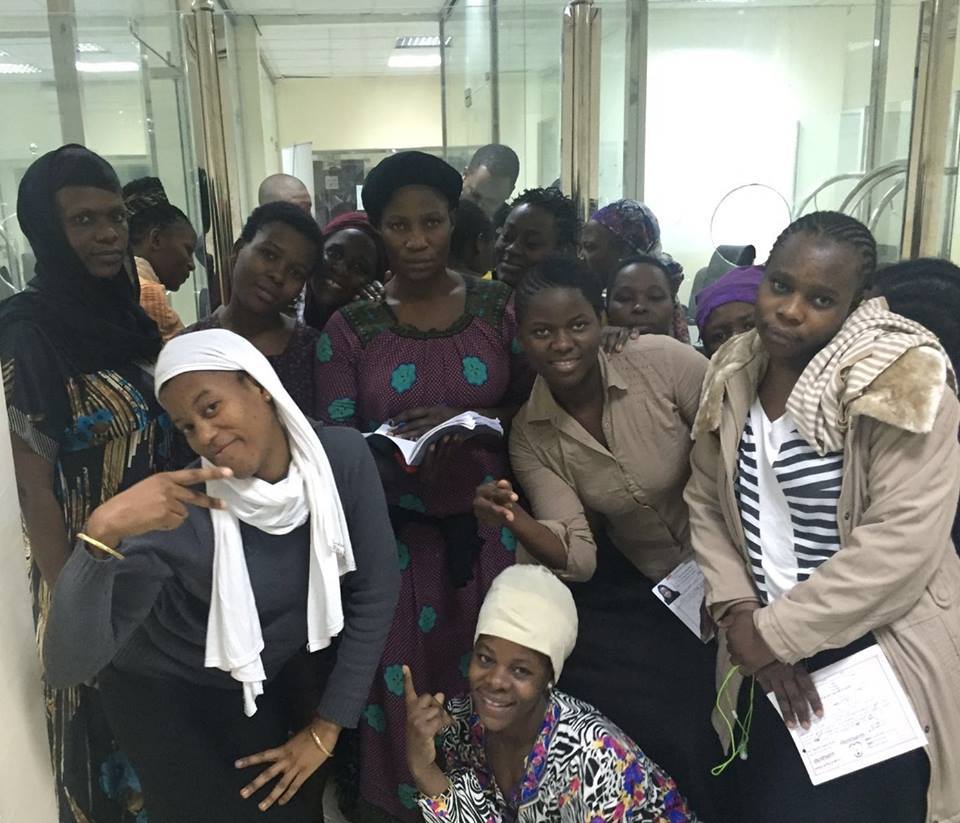“Working abroad has always been my dream because I believed that I was not going to get enough money as quickly as I wanted if I stayed in Uganda.
The thought of staying was exciting for me in the first place. When I completed my university at Uganda Christian Unversity Mukono, my sponsor who had paid for my university education helped me get connections in Dubai and that’s how I moved out of Uganda,” Rebecca Karuhanga , a business lady says.
She explained that while in Dubai, she worked as a shop attendant and because of the unfamiliar working conditions she opted to shorten her contract and left.
Rebecca adds, “We always had no time to rest and I was fatigued all through. I came back after 2 years instead of completing my contract of 4 years. I faked sickness but I still was not allowed to leave.
I decided to make up a story that my mother was ill and I needed to come and take care of her for two weeks and return. My sister called crying to talk to my boss and that is when I was allowed to travel, but all this was concocted. I left and have never gone back and t has been three years now.”
Many Ugandans have desperately searched for employment as far as Middle East and unfortunately some have been by conned and ended up in slavery. Luckily, some have escaped while others are still in unknown places.
Stella Sanyu, an agent at Cella investments, an employment export company in Ntinda, Kampala says that people in take caution especially while following the abroad employments adverts that they find on the internet. She says “For one to tell that an employment company is legit, it must have a license of registration from the ministry of Gender, Labor and social development. The ministry ascertains that these companies are accurate and provides a working license and the public has a right to see this license”
Ministry of Gender labor and social development has said that it is reviewing the policy on the minimum wage for approval.
According to the ministry, the policy was taken to cabinet but a few faults were found there in and bounced back for a possible review so that they can cater for the other sectors and jobs.
Mr Pius Bigirimana, the Permanent Secretary of the ministry said the process would take a little bit longer than expected but would finally be released once it is completed.
“The whole this was finished but we had not looked at these other sectors like the small employees and employers. We shall settle these and make sure that everything and everyone is catered for in this policy before we release it,” Mr Bigirimana said.
According to the recent NSSF report, Uganda has about 15million workers but only 1.5million are saving with NSSF. The remaining number (13.5million people) is believed to be casual laborers whose stay at a company is uncertain.
Stipulating the laws governing the worker, acting Commissioner at the Ministry of Gender, Labor and Social Development Mr Apollo Onzoma said, “Among the key labor laws in Uganda are, the Workers Compensation Act 2000, the MinimumWages Act 2000, the Employment Act 2006, the Labor Union Arbitration and Settlement Act 2006 and the Occupational Safety Act 2006. Some, like theMinimum Wages Act 2000, although entrenched in law are however hardly enforced.”
Mr Bigirimana said that the new policy would make sure that everyone gets what they deserve and what they are meant to earn.
According to the Uganda Bureau of Standards indicates that the size of the labour force in 2016/17 was estimated to be about 10 million and this was an increase from 8.8 million in 2012/13. Nationally, the Labourforce Participation Rate (LFPR) was 52 percent and Employment to Population Ratio (EPR) was 48 percent. The LFPR was higher for males (60%) than females (46%).
Similarly the Employment to Population Ratio was higher for males (56%) than females (40%). The national unemployment rate was nine percent. Nationally, 38 percent of persons in employment were in paid employment with a higher proportion of males (46%) compared to females (28%).
Service and sales workers constituted the highest proportion of the employed population (29%). Agriculture sector accounted for the largest share of employment (36%). The overall median monthly wage of an employee was UShs. 168,000 per month with the median wage in urban areas (UShs. 220,000) almost twice that in rural areas (UShs. 120,000)
